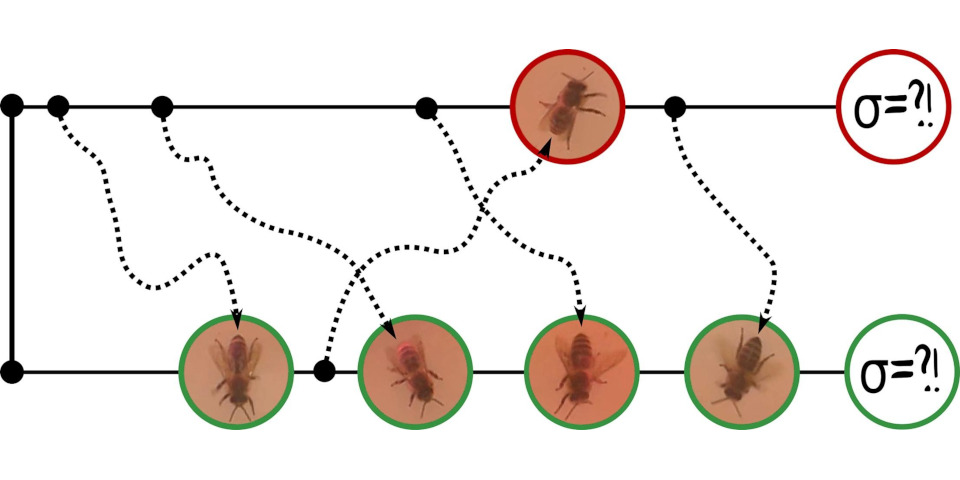Automated bee counters have evolved and become more versatile over the last hundred years. To date, however, there is no method for standardized validation of counting accuracy and thus no reliable data on daily bee losses or background mortality in bee colonies. Such data, however, are urgently needed by regulators to establish future guidelines for pesticide risk assessment. In this work, we combined existing approaches into a new protocol for validating bee counters. In a case study, we demonstrated that the protocol is sufficiently practical to determine the counting accuracy of a commercial system. Counting accuracy was modeled by the difficulty of specific measurement conditions. The daily loss, i.e., the difference between incoming and outgoing bees, can be used to assess colony health and environmental impact, and to draw conclusions about the effect of pesticide applications on bee colonies. The protocol developed makes innovations in this field measurable and creates a basis for benchmarking different types of bee counting systems. In this work, we further discuss how such a protocol can be used to advance the sector in the future.
Parzival Borlinghaus, Richard Odemer, Frederic Tausch, Katharina Schmidt, Oliver Grothe, Honey bee counter evaluation – Introducing a novel protocol for measuring daily loss accuracy, Computers and Electronics in Agriculture, Volume 197, 2022, 106957, ISSN 0168-1699, https://doi.org/10.1016/j.compag.2022.106957
Free article download (50 days) @ https://authors.elsevier.com/a/1ezowcFCSTdyv







